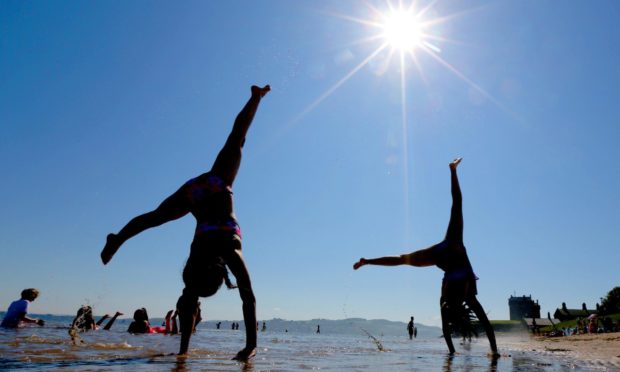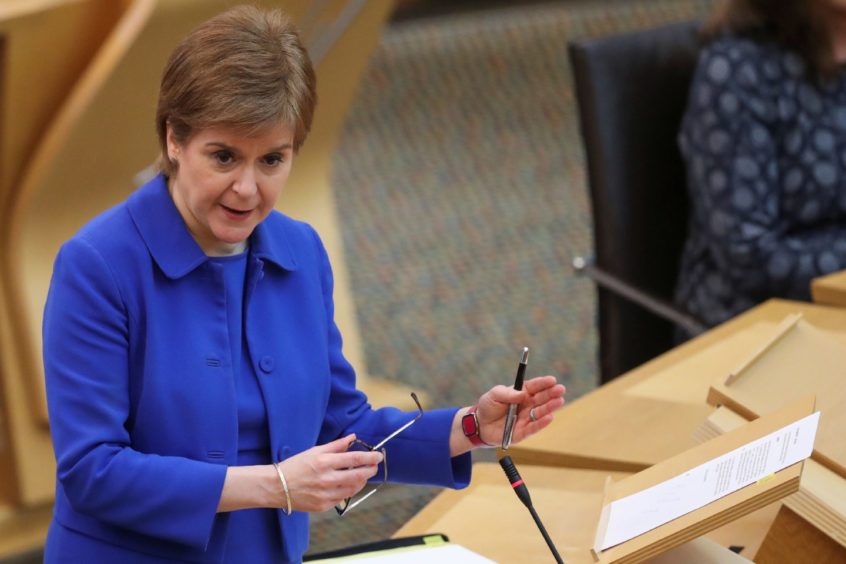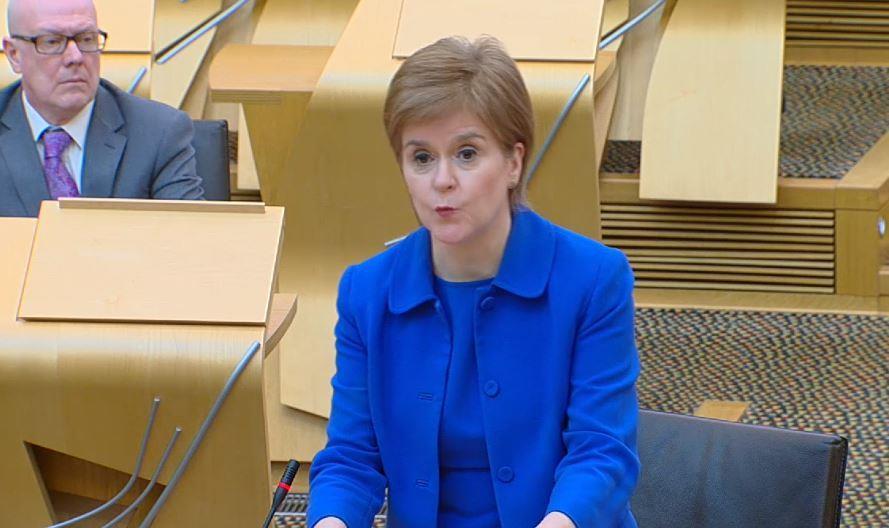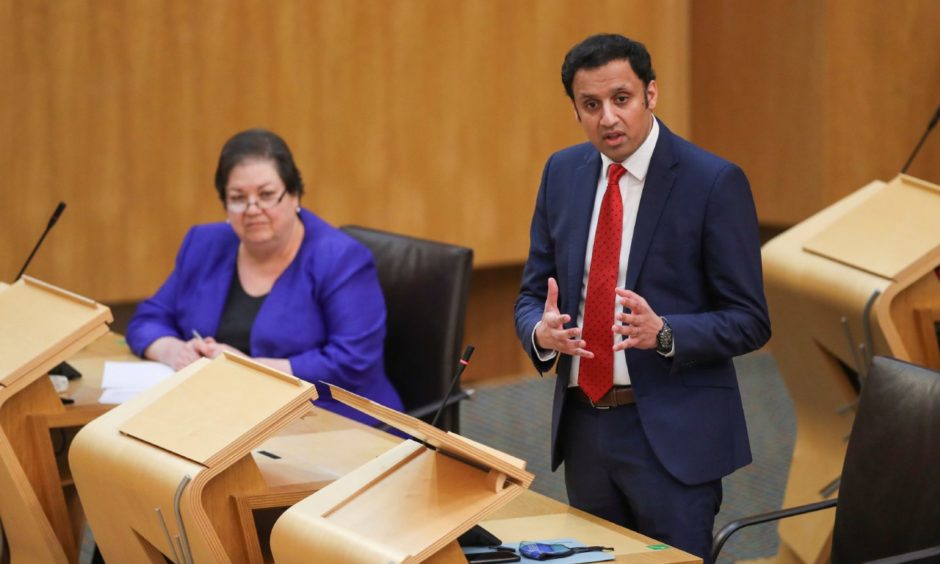Shops, bars and restaurants are to reopen across Scotland and the “stay at home” rule will come to an end after Nicola Sturgeon unveiled key dates in the country’s journey out of lockdown.
The first minister insisted “brighter days are ahead of us” as she outlined indicative dates for easing the toughest coronavirus restrictions but warned these are conditional on continued progress in driving down infections.
The process will begin with a further relaxation of the measures currently in place before moving back to the levels system used earlier in the pandemic – and continued success of the vaccine programme could see restrictions rolled back more quickly.
Speaking during Tuesday’s Covid-19 update in Holyrood, Ms Sturgeon said she hoped to move Scotland towards “as much normality as possible” by the summer and predicted the country could enter the lowest level of restrictions by the end of June.
The first minister said Scotland is on track to hit the target of offering a first dose of vaccine to all priority groups by mid-April, and stressed this would “give us confidence to ease restrictions much more significantly from April 26”.
Ms Sturgeon told MSPs that from April 2 the government expects to lift the current “stay at home” rule and replace it with a “stay local” message that will encourage people not to travel outside their local authority area for non-essential reasons.
Three days later, on April 5, hairdressers will reopen, students should be able to return to on-campus learning and there will be a phased reopening of non-essential retail and click and collect services, including garden centres.
Scotland will reach a major milestone on the route back to near normality on April 26 if all nine priority groups, including all over-50s and vulnerable groups, have been offered their first dose of the vaccine by this date.
Under the plans, all parts of the country currently living in level four restrictions will move down to a modified level three, and the islands potentially to level two.
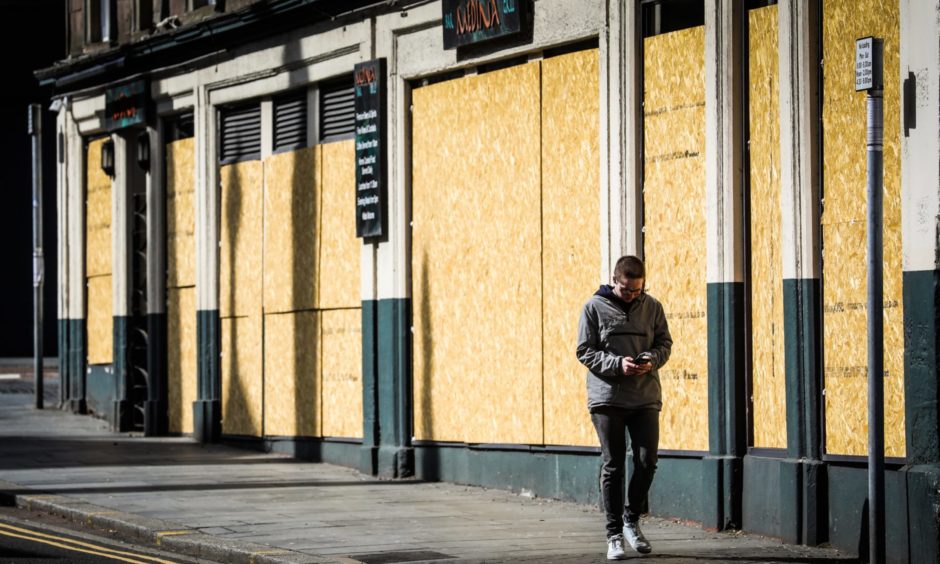
Travel restrictions on journeys within mainland Scotland are expected to be “lifted entirely” but Ms Sturgeon warned there may be a need to further protect island communities at this stage.
The SNP leader said journeys between Scotland and other parts of the UK will be lifted “if not on April 26 then as soon as possible thereafter, however we need to keep this under review”. International travel is expected to be banned until at least mid-May.
Pubs, bars, cafés and restaurants will be able to serve people outdoors – in groups of up to six from three households – until 10pm, and alcohol will be permitted with no need to for food to be served. There will also be a partial resumption of indoor hospitality.
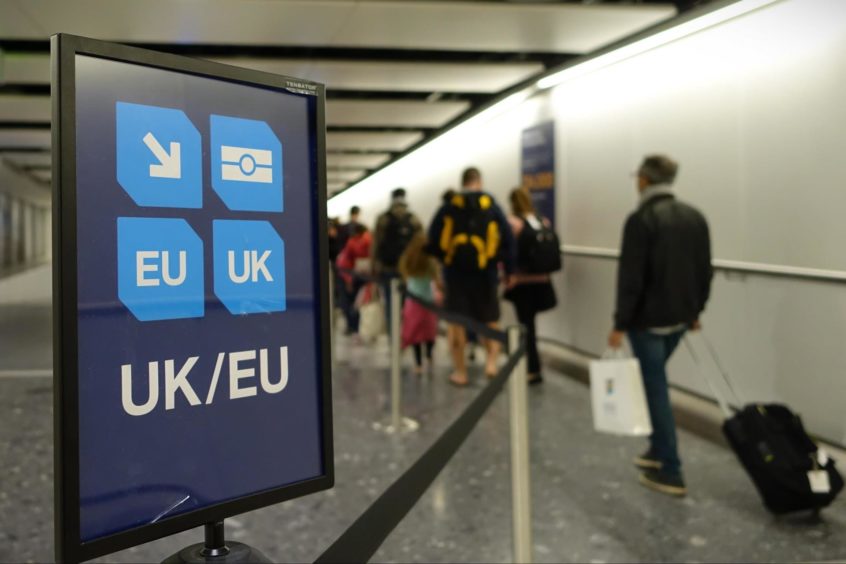
All remaining retail premises, tourist accommodation and attractions, and indoor gyms will also be allowed to reopen, and attendances at weddings, funerals and receptions will rise to 50 people.
Six people from up to three households will be able to meet outdoors but Ms Sturgeon said a decision has not yet been taken on whether people will be allowed to meet indoor, with the situation being kept “under ongoing review”.
She told MSPs that four people from two households should be allowed to meet indoors from May 17 at the latest, as all level three areas move down to level two.
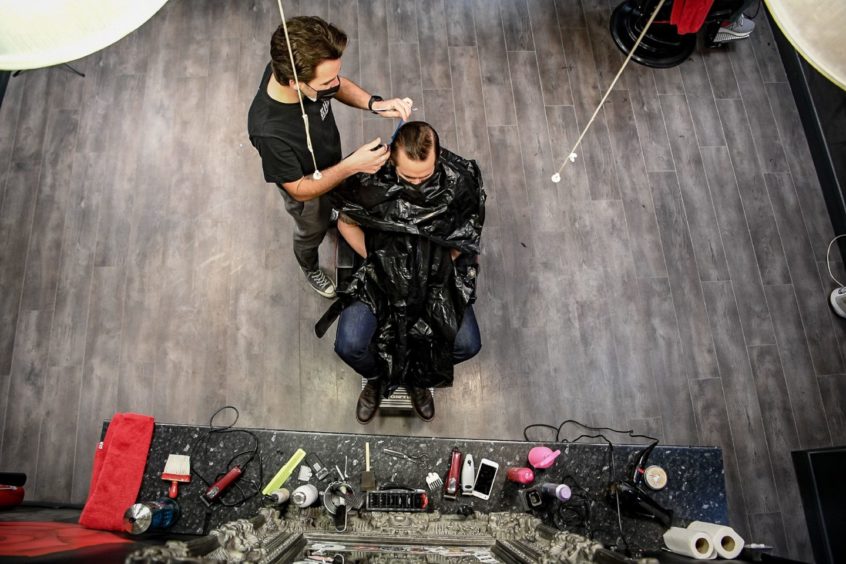
On the same date, the government hopes cinemas, arcades and bingo halls will reopen, along with adult outdoor contact sports and indoor group exercises.
Ms Sturgeon said that to come up with precise dates for other changes – like “normal family gatherings where we can hug our loved ones, sporting events, gigs and nightclubs” – would involve “plucking it out of thin air”.
“The steps I have outlined today give a significant degree of clarity for the period between now and the middle of May,” she said.
“The unpredictable nature of this virus means – and I hope that people understand this – that it is difficult to give quite as much clarity beyond that point.
“However our hope and ambition is that from the early part of June all of Scotland will move to level one, which will allow for a further easing of restrictions. And then by the end of June we hope that all of Scotland will move to at least level zero.
“Now level one, and even more so level zero, will be a massive improvement on where we are right now. But those levels still involve some restrictions.
“And so we hope that we will be able to get beyond even that. We will be assessing the situation, as people would expect, on an ongoing basis with a view to restoring as much normality as possible.”
Future of firms still in doubt
Business leaders welcomed the first minister’s announcement but warned that the survival of many local firms is still in doubt.
Andrew McRae, from the Federation of Small Businesses, said that while the country appears to be winning the race against the virus, “we still face a countdown to save our local businesses before their reserves of cash and resolve are exhausted”.
“Half of all Scottish independent business owners say they’re worried about their survival, and official figures show that local Scottish enterprises are laden with billions of pound of debt,” Mr McRae said.
“The crisis is nowhere near finished for thousands of important local Scottish firms.
However, David Lonsdale, director of the Scottish Retail Consortium, said the government deserves credit “for listening to the representations from retail”.
“This announcement provides much-needed certainty to the industry, and its welcome to see moves to unwind a number of the elevated lockdown restrictions which were implemented at the turn of the year,” he said.
Liz Cameron chief executive of the Scottish Chambers of Commerce, said the announcement was a “good start” but added there is “still a lot of work to be done to plan for the reopening of the remaining sectors of the economy”.
This lockdown must be our last
Scottish Labour leader Anas Sarwar welcomed the news that businesses will receive additional funding but stressed that this lockdown must the country’s last.
He called for more backing for firms to recover, saying that “transitional support must be available over the longer term to avoid businesses having to close”.
Meanwhile, Scottish Conservative Holyrood leader Ruth Davidson urged the first minister to improve or speed up a series of measures on behalf of women.
These include a quicker reopening supervised places for exercise such as gyms; greater access for partners during pregnancy treatment and trialling of home smear tests for cervical cancer; and an increase in high court trials.
“Women across Scotland have shared the same feelings of shock and anger over the murder of Sarah Everard in London,” Ms Davidson said.
“There are changes that Nicola Sturgeon could make now to make things better.
“Simple measures around medical care, exercise and criminal justice which would make material improvements to a number of women’s lives as we come out of this Covid lockdown, and I urge the first minister to act.”
